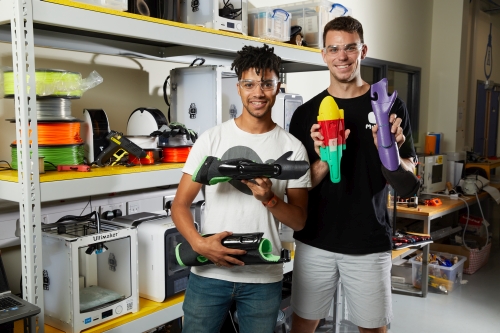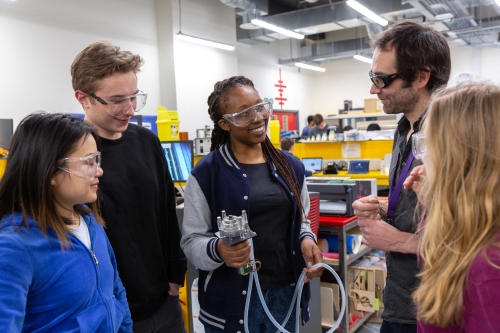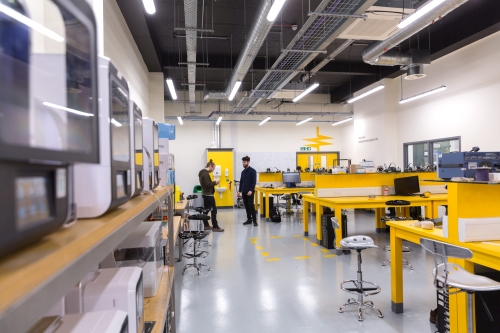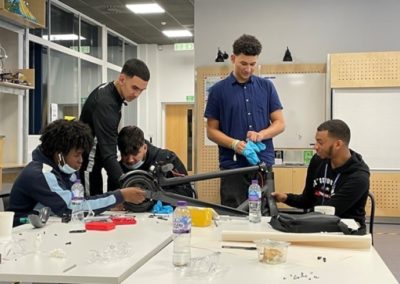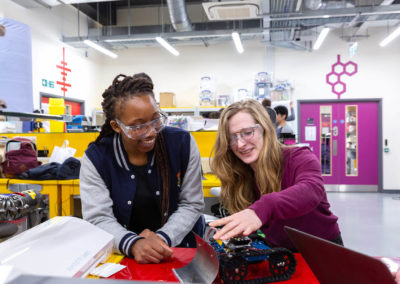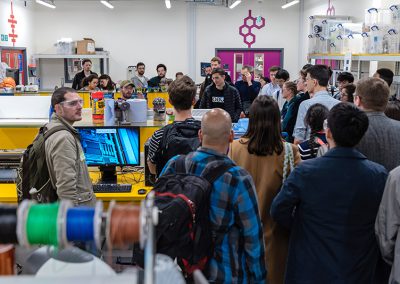BSc Remote Medicine at Hackspace: Building a device to measure Acute Mountain Sickness
Callum Sowden completed a 15 week project with his course BSc Remote Medicine at Hackspace, where he designed and built a device to measure respiratory rate and facilitate earlier prediction and detection of Acute Mountain Sickness (AMS).
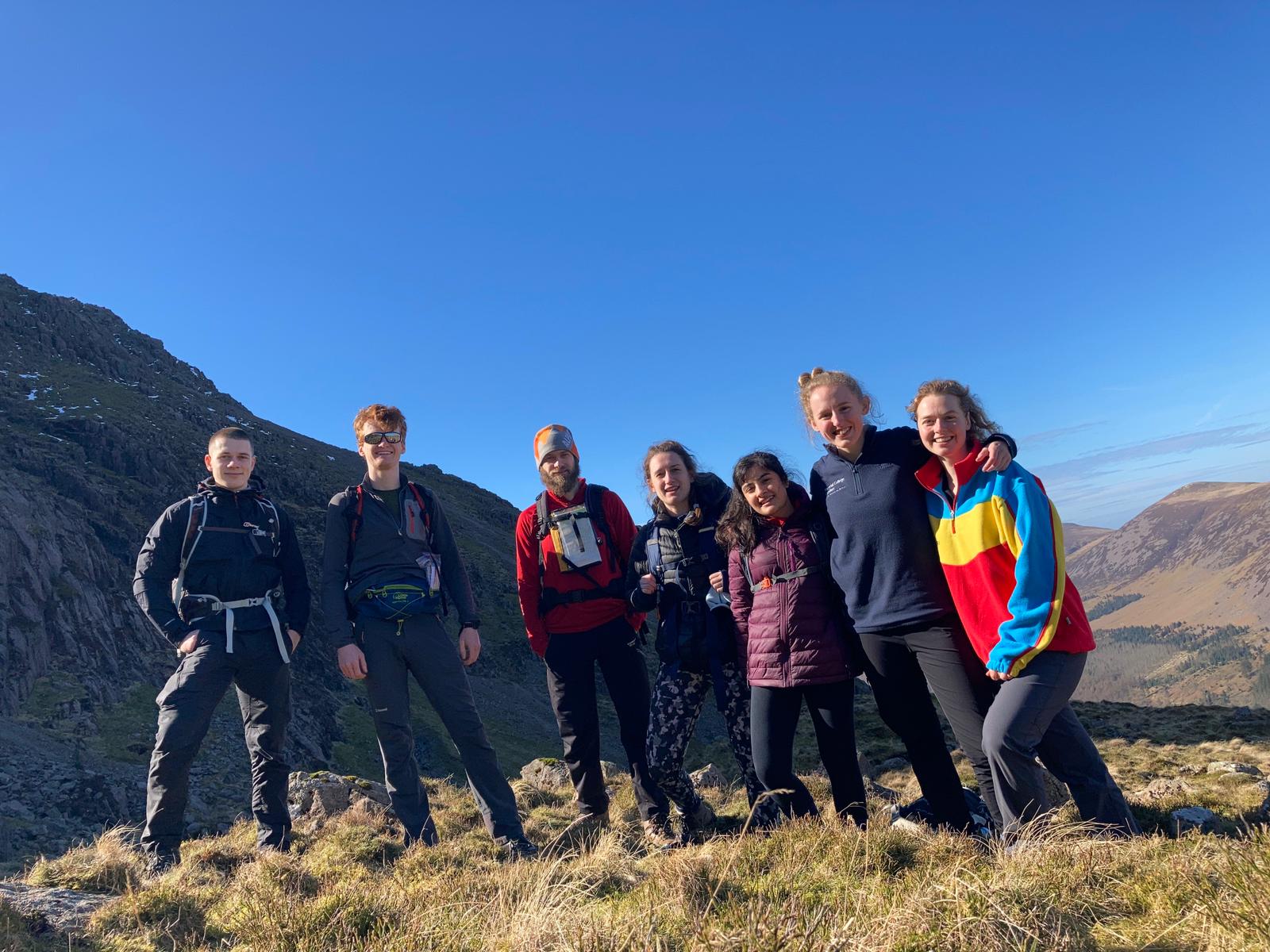
By Callum Sowden, BSc Remote Medicine '22, Faculty of Medicine
In the spring and summer 2021 Hackspace hosted several undergraduate students from BSc Remote Medicine to take part in a 15 week project designing, prototyping and building devices related to biological sensing and validation. Callum Sowden shares his experience below, including what he achieved and gained during his time working with Hackspace.
The project
As a consequence of reduced available oxygen, some travellers to high-altitude areas develop Acute Mountain Sickness (AMS), which in severe cases can be fatal. Sufferers of AMS exhibit a raised respiratory rate among other physiological changes, such as reduced pulse oximetry. This project aimed to design and build a device which measures the wearer’s respiratory rate, thereby facilitating earlier prediction and detection of AMS.
We worked with the Hackspace throughout the 15 week project and progressed through multiple stages of development and iteration. The final design utilises a conductive rubber cable which changes resistance when it’s stretched. When incorporated into a belt worn around the chest, the change in length of the cable as the wearer breathes in and out can be read as a change in voltage across the cable and represents respiratory effort. This is converted to respiratory rate in peak detection software. We tested our device against a clinically validated device in the Lake District.
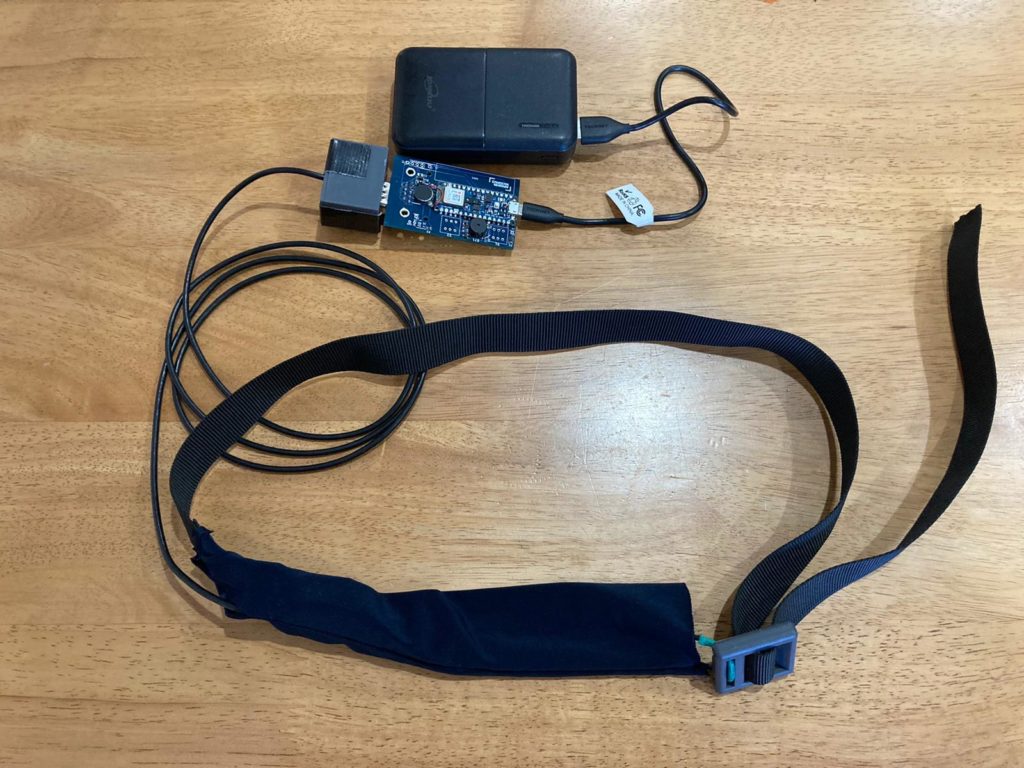
The conductive rubber cable that can be worn as a belt around the chest to detect AMS
The Hackspace experience
Completing a practical dissertation project at the Hackspace has shown me that there is exciting potential for this field of research. I am very keen to stay involved in the AMS project, especially when future students are able to take the device to high-altitude areas.
“I learnt plenty of skills which I saw as inaccessible and too challenging for me at the beginning of the project, such as coding, electronic design, CAD and even sewing!”
I had brilliant tuition and support from Hackspace Fellow Dr David Pitcher, his devotion to helping us with the project was hugely appreciated and we would not have got anywhere without his involvement.
I learnt plenty of skills which I saw as inaccessible and too challenging for me at the beginning of the project, such as coding, electronic design, CAD and even sewing!
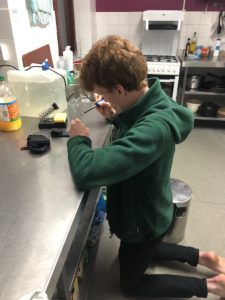
Callum works on his prototype
The biggest achievement
Completing the device two days before the deadline and being able to take a working respiratory belt to the Lake District for testing was the biggest success of the project. It was a great feeling to have gone from seemingly abstract ideas to a working device in just six weeks.
Challenges and set backs
Ultimately, the device had a few key flaws and unfortunately it wasn’t able to accurately measure the wearer’s respiratory rate. We spent a few weeks after the testing trip in the Lake District attempting to improve the signal quality through frequency filters and other post-hoc methods, however these didn’t have the desired effect. I would usually see this as a failure but as I’ve learnt at the Hackspace, it’s really all part of the research process, and expecting the device to work perfectly on the first attempt would have been unrealistic.
My advice to others
Throughout your time at the Hackspace, focus on how you can gain the most out of the experience and learning new skills rather than focussing solely on the final product. You will gain far more from your experience in the Hackspace and it took me a few weeks to grasp this!
What’s next
I’m heading into the final year of medical school which is going to be challenging and busy. For the AMS project, it would be great to see some students from the next Remote Medicine cohort undertake a project with the Hackspace who will learn from our mistakes and develop our devices further.
Edited for clarity by Rebecca Covey
